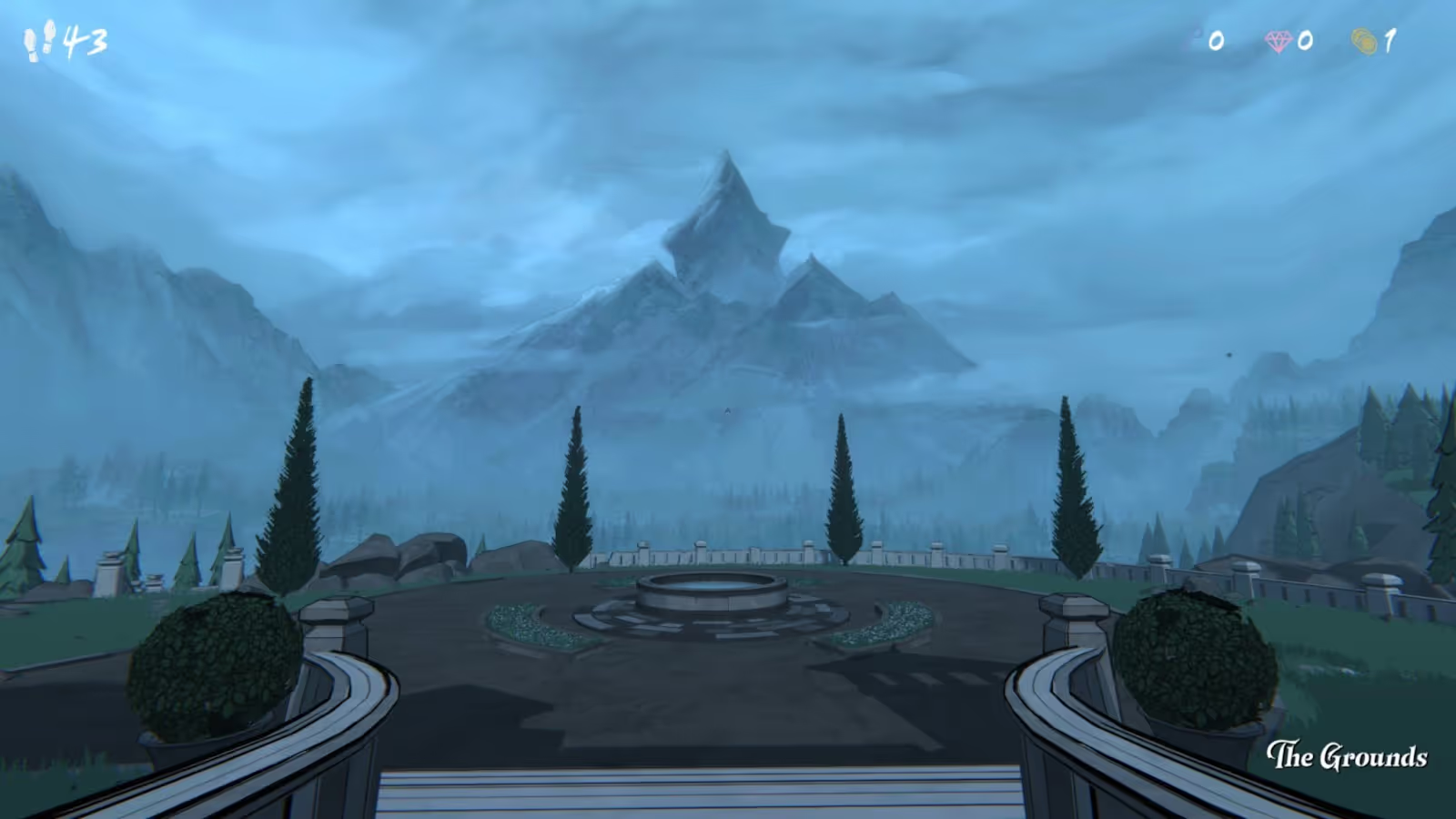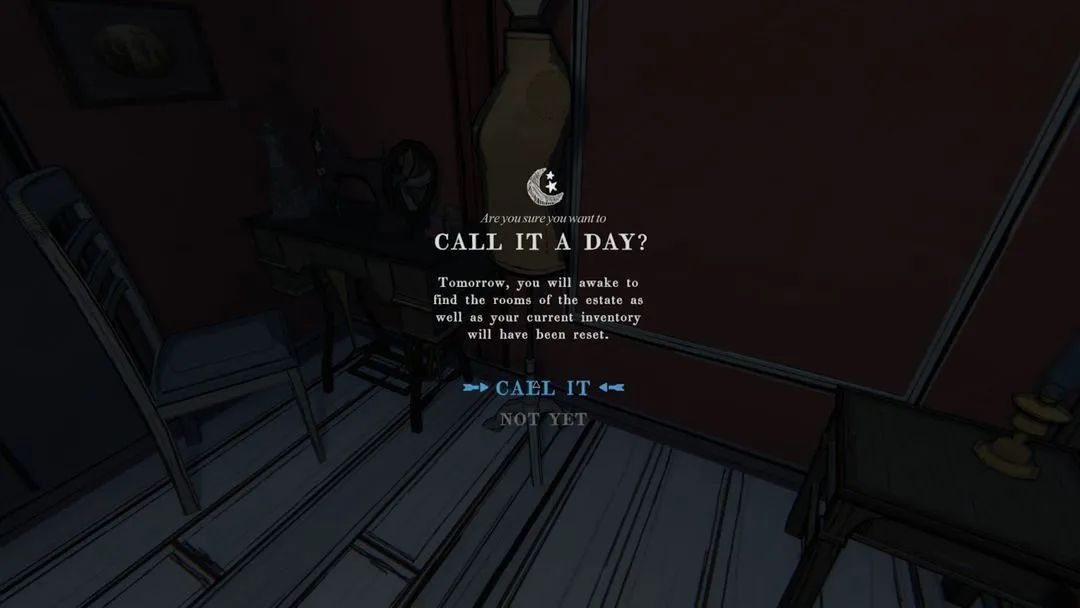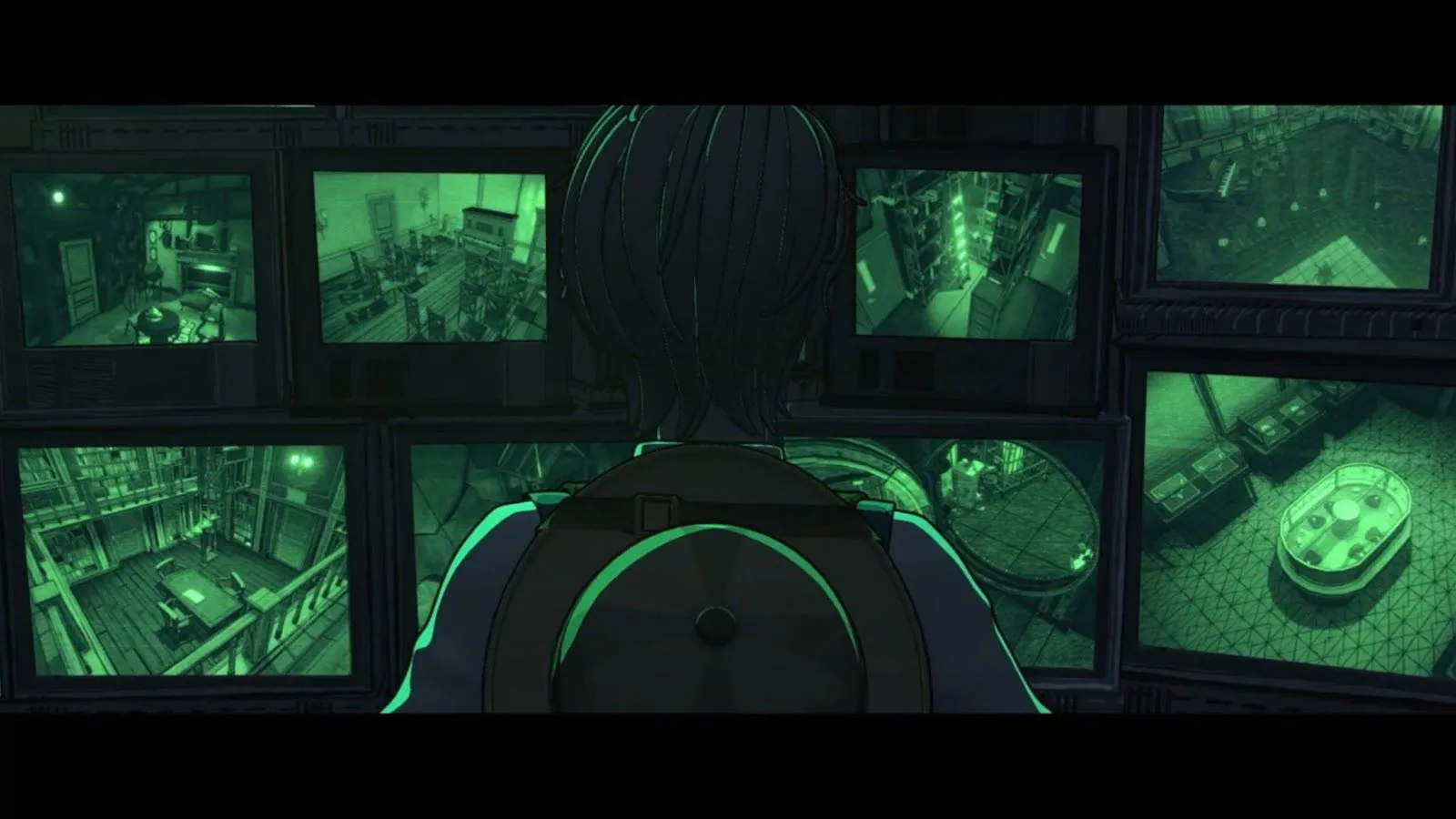PC
It seems like it’s been ages since an actually unique video game was released. Maybe I’m just jaded, but it seems like literally every video game I play these days is clearly inspired by something that came out at least a decade ago. Not for Broadcast, for example, is one of my favourite titles of all time, but it’s just Papers, Please mixed with V for Vendetta. Atomfall is Doctor Who combined with Sniper Elite. Highwater takes XCOM’s gameplay and sets it in the world of Waterworld. However, in the five years I’ve been writing for Jump Dash Roll, I’ve never come across anything quite as genre-bending as Blue Prince. Even though the game isn’t perfect, and it’s not for everyone, it can’t be described as “something combined with something”, or “like something better but…”. It can, however, be described as “surprisingly good”, too.
In the words of Blue Prince’s development team, the game is a mix of mystery, strategy, and puzzles. If you’re wondering which puzzles, mysteries, and strategies those are, though, you’ll be hard pressed to find any good examples. In the title, you play as the provisional heir of a mansion who is tasked with becoming its actual heir by finding its illusive 46th room. That is, somewhat expectedly, a lot more convoluted than simply looking around all of its nooks and crannies in the first person. Unexpectedly, though, that isn’t because you’re forced to solve point-and-click puzzles or anything like that. Instead, the reason Blue Prince is a challenging game is because the layout of the villa resets every in-game night. Every time you close the game, or are forced to call it a virtual day because your character runs out of energy, everything besides its entryway and size changes. So every day that you don’t find its antechamber, you have to explore the 5-by-9 set of rooms all over again.

However, the layout of Mount Holly isn’t exactly randomised. Instead, you, the player, have to determine what type of room you’ll enter before opening its door. Each time you do so, you’ll have three options, all of which are in fact randomised. That’s where Blue Prince’s strategy elements come in: each space has its own advantages and disadvantages. Bedrooms, for instance, give your character more energy but only allow you to move linearly through them. Hallways don’t let you rest, but contain multiple methods of egress. Closets contain keys and gems that allow you to purchase items from a shop even though they’re dead-ends, and speciality chambers contain logic puzzles which may help or hinder in different ways. There’s an assortment of other types of rooms the game draws its pool of three choices from too, each one of which comes with its own pros and cons. Determining which kind of space you want to figuratively draw from its large proverbial deck requires skill that takes at least a half dozen hours to learn.

Once you do, you can focus on the rest of Blue Prince’s gameplay. That involves solving optional puzzles to uncover what’s actually happening in Mount Holly, and toying with its roguelike elements. The former rewards you with text notes that more-or-less serve as the extent of the game’s story, which while cliche, is about as interesting as any other puzzler. The latter, however, is equal parts frustrating and enjoyable. Blue Prince’s greatest strength, and its greatest weakness, is that it relies heavily on random number generation. What specific rooms you’re able to create, and what puzzle items and consumables are in those rooms, are completely randomised. There’s a set pool of both, but whether or not you’ll see any part of that pool on any given run is entirely up to chance. For example, you may find a key you need to open a specific door, but you may not be able to create the room containing that door, or the room that allows you to save the key you need for the next run. It’s equally possible for you to end up with everything you need to beat the game the first time you boot it up, but there’s no way to know for sure.
During your first few playthroughs, that will likely seem like it’s the game's main selling point. It forces you to constantly experiment with its mechanics, and ensures it never really goes stale even after dozens of hours. It can, assuming you enjoy its puzzles and randomisation as a whole, keep the title feeling fresh regardless of how often you play it. However, if you prefer to be able to solve puzzles with purely your own wit, it can become a pain to roll the metaphorical dice before you’re able to do whatever self-imposed, or game-imposed, objective you set for yourself. Deciding which group you’re part of, then, ultimately determines how much you’ll actually enjoy Blue Prince.

That’s not a bad thing, though; Blue Prince is unabashedly an indie game, for better and worse. It has all the essential elements of a fundamentally good game, including great visuals, a solid soundtrack, inherently good puzzle design and a narrative that isn’t awful. However, it isn’t for everyone. It’s the type of title that forces you to constantly take literal notes if you want to solve its more complex mysteries, and one that requires you to have a strong tolerance for things beyond your control. It’s a somewhat strange title, and one that’s almost wholly unique. Whether or not that makes it a fun game to you, though, is up to you.
You can subscribe to Jump Chat Roll on your favourite podcast players including:
Let us know in the comments if you enjoyed this podcast, and if there are any topics you'd like to hear us tackle in future episodes!


